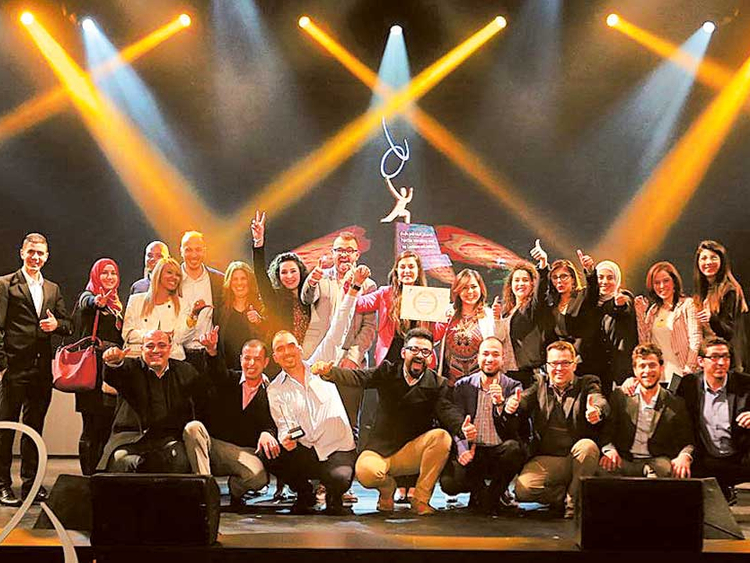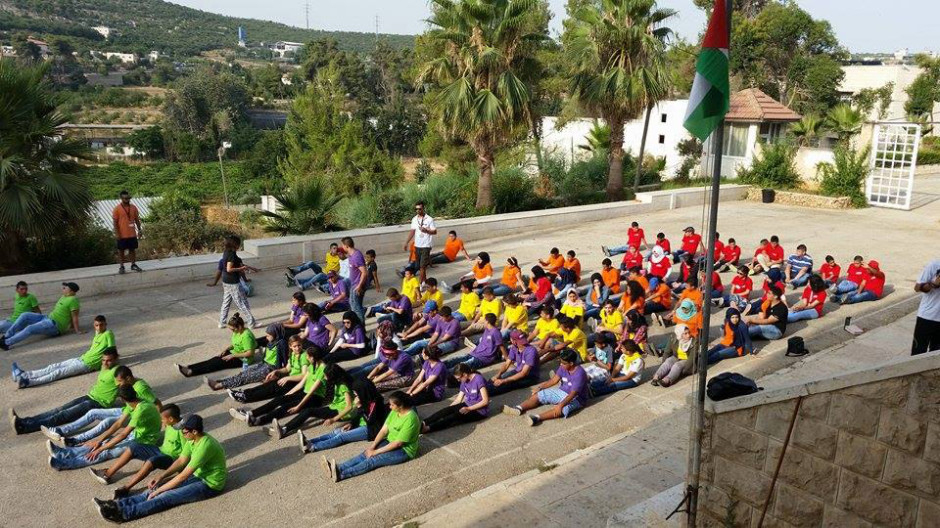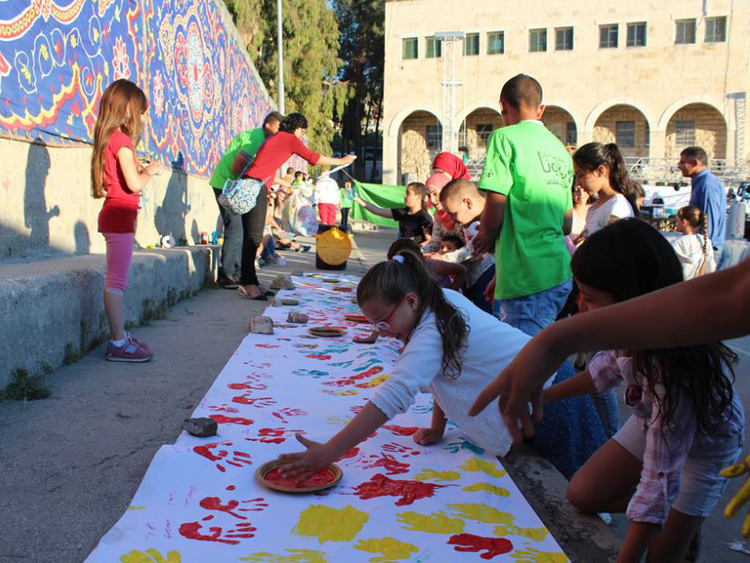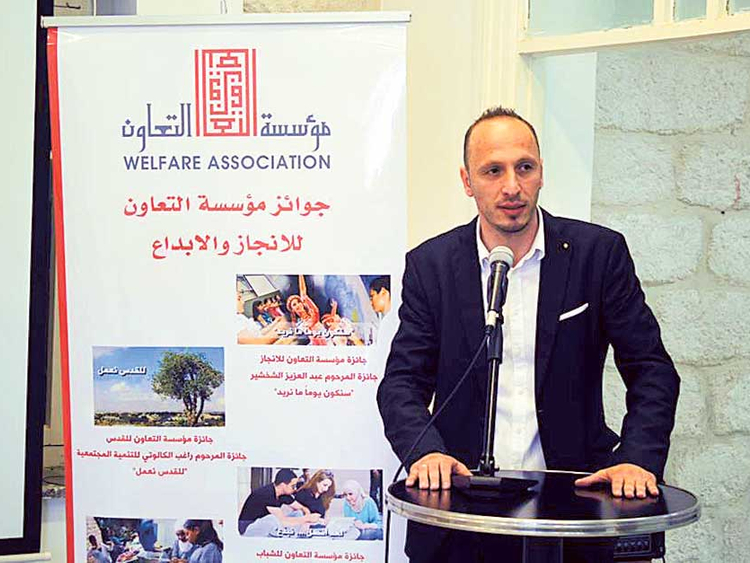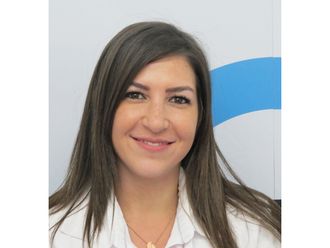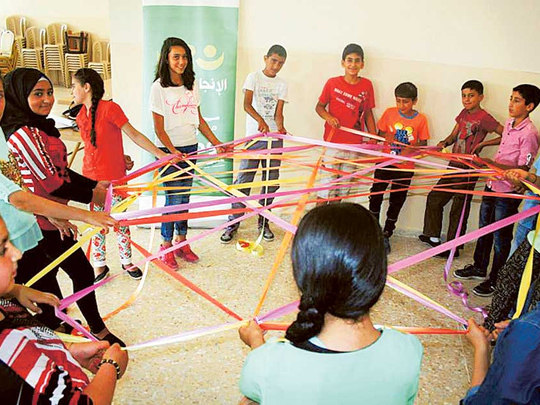
That there’s a sense of hopelessness among the youth of Occupied Jerusalem is evident in the recent displays of rage. In desperation, some of them attacked Israel soldiers, an act that cost them their lives and mounted hardships on their families who had to suffer collective punishment, such as their homes being demolished.
But amid all this, there’s someone working to channel the youth’s frustration, its sense of loss, into a positive and productive outcome.
Rami Naser Eddin, who heads Palestinian Vision, a youth-oriented organisation, greets me in front of the Israeli Police Station in Salahuddin Street, from where we walk to his office located just outside the Old City. He points to a park on the other side — it is frequented by youngsters and the use of drugs is common there. We take the elevator to the third floor, disembark and walk past the fourth, which was once the Palestinian Chamber of Commerce, but since the Second Intifada, it has been sealed by Israel.
“Now you can see the circumstances in which we have to live and work in Occupied Jerusalem,” he tells me, in jest.
Seated in his cabin overlooking the Old City, Naser Eddin gets all animated explaining the organisation’s incredible journey. “In 1998, we were three volunteers working for the Palestinian Ministry of Youth and Sports. But we found that they were using us, so we decided to establish our own organisation. Until 2003 all we had was a bag and slogans with the telephone number of my home. But we managed to have more than 500 members, held meetings in public gardens with no resources. We believed we were the resources.”
The initial years were all about learning the ropes, and a few revelations. “During this period, many NGOs were using us, but we had no problem with that. We were learning as we weren’t good at building organisations. Our strategy was: let us learn first.”
The organisation began with summer camps and activities without any projects, working all over Palestine. “In 2003 UNDP gave $9,100 [Dh33,424], that’s when things really took off. The first salary I earned was with a UN voluntary programme. At that time $970 was an achievement.” he says with a smile.
“In the first five years, we operated out of my family home, and my father even kicked me out for three weeks as the phone calls bothered him a lot.”
Naser Eddin, a qualified civil engineer, is an only son and his father compelled him to pursue an academic career. But his life took a turn and his primary concern now is the lost youth of Occupied Jerusalem.
He recalls the difficult road that has brought him to where he is today. “In the beginning people attacked us for a host of reasons — political, [accusing us of] normalisation and [of] being a venue where boys and girls could meet. I took all the criticism but moved on.”
His diligent work, however, did not go unappreciated. He received many prestigious awards as well as aid from international organisations of repute.
“After 2003 we experienced a 180° turn with the partnerships, funds and professionalism that the organisation was blessed with. Today Palestinian Vision has 18 full-time staff but to work in Occupied Jerusalem we have two registrations and with that come two annual reports, taxes, etc. and two headaches, but it is all worth it. Today we have more than 10,000 beneficiaries including those in the Jordan Valley area and Bethlehem in Area C [both of which are under full Israeli control].”
So how’s Palestinian Vision different? “We talk about things no one else talks about. We know our main problem is the Israeli occupation but we also criticise ourselves and our leaders,” he says.
Naser Eddin flips though the organisation’s annual report, showcasing its activities and successes. “We are developing applications that would enable you to see all of Jerusalem, such as ZIQAQ, and we have three goals — employment and entrepreneurship, resilience in Occupied Jerusalem and culture and identity,” he says.
“We have four types of schools and 51 per cent follow the Israeli curriculum. The rest are either under the Palestinian National Authority, UNRWA or are private. We have to work with all of them. We intervene through their principals and with funding from Palestine Welfare Association, British Council and Quakers. We teach filmmaking, creative writing, drama and theatre and also encourage entrepreneurs.”
And what are the other projects? “MITRKEN is a big one in which we get 20 students each from the West Bank, Gaza and from Palestine post-1948 and we meet twice, either in West Bank or Jordan Valley or on Skype if the Gazans are not permitted to travel. Through this programme we counter the divisions created by the occupation by building bridges and together we instil the fact that we should be united as one nation.”
The youth of Occupied Jerusalem have produced many videos as joint projects. With a sense of achievement, Naser Eddin plays some of them on his desktop.
Palestinian Vision also undertakes many educational tours for the youth of Occupied Jerusalem. “There are 37 destroyed villages, and for the sake of identity we show our youth that this is Palestinian land, this belongs to you. We make them aware of their real names. Also we have many games and storytelling activities, which we believe are better than any lecture. In 2009 we had storytellers in every corner of the Old City, with historical characters telling stories and others challenging or reinforcing them. In this way, we change the perception of our youth.”
Naser Eddin comes across as a man with a mission and principles, ready to take a stand. “Our fight is against normalisation, which other NGOs do. We are talking about real stories, not only about the occupation and the conflict in Occupied Jerusalem is also between the original families, with a sense of nobility, and those like me who were born here. The former don’t want anyone to take over from them. For us, it is all about unity whereas for the elite of Occupied Jerusalem, it is about control.
“It is the pretentious elite who benefit from the occupation in the form of NGOs. We criticise the Palestinian [National] Authority, we promote critical thinking in our youth and we are proud to say that we have no political link to any party whatsoever. We want to change the philosophy, we want to return to our roots, we want to challenge corruption. Life is resistance and we don’t want to lose our youth, so Palestinian Vision is their platform to express themselves.”
They have a very active website — www.quds.com.ps — which promotes the symbols of Occupied Jerusalem in order to keep it alive against the tide of Judaisation.
Naser Eddin notes that the Middle East has other areas of concern springing up and his vision is to end Palestinian Vision’s dependence on donors and make it a self-sustaining enterprise. In this regard, he has brought in investors to build an income-generating school in Nablus.
As I leave the building and walk into the busy downtown, I pass by a bunch of youngsters heading in the opposite direction. After my conversation with Naser Eddin today, I feel a sense of hope, a sense that there is hope for them, too.
Rafique Gangat, author of “Ye Shall Bowl on Grass”, is based in Occupied Jerusalem.



